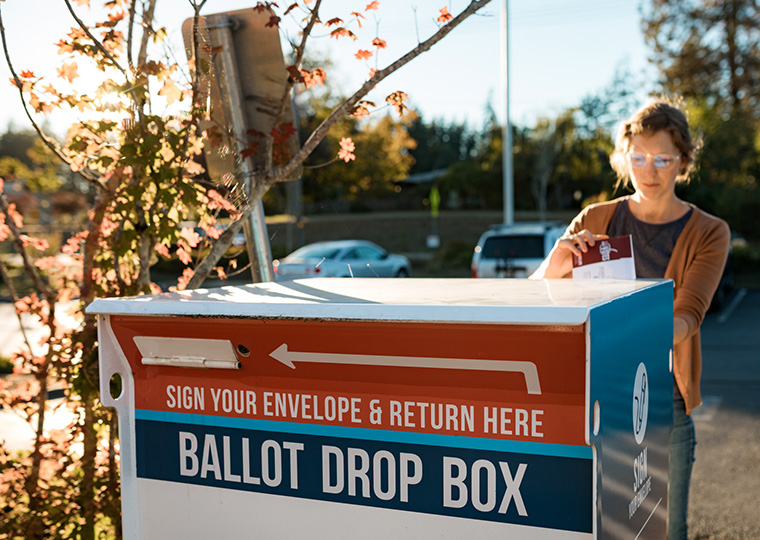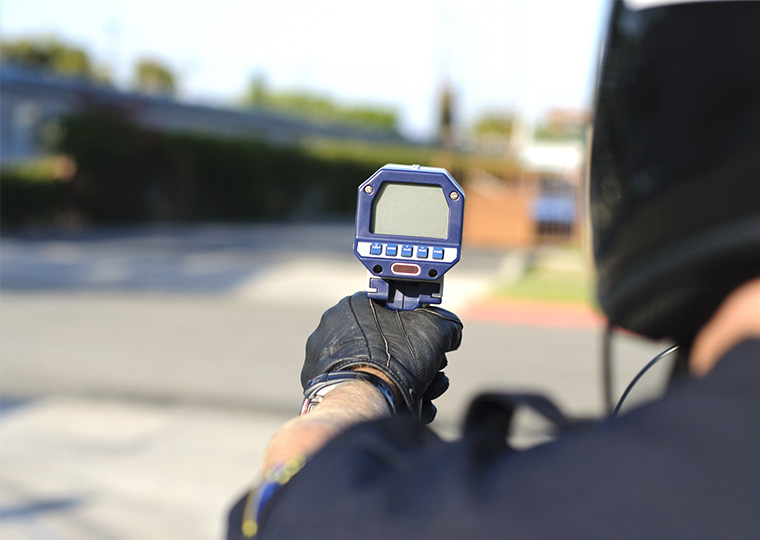GOP legislatures often made firearm laws looser after infamous events
Public sentiment alone does not translate into effective legislating.
In fact, the intensity of a minority point of view, as in the case of those favoring expanded legal rights for gun ownership, or an overwhelming economic interest by an industry, as in the case of pharmaceutical companies opposing efforts to reduce drug prices, often wins the day in national and state legislatures.
Case in point: A 2019 survey by Pew Research Center found that 60% of all Americans favor tighter restrictions on firearms, including bans on assault-style weapons and high-capacity magazines. However, research by Harvard’s Michael Luca and Deepak Malhotra and UCLA Anderson’s Christopher Poliquin, published in the Journal of Public Economics, found over a 25-year period that, in the wake of a mass shooting, state legislation adopted into law was actually more likely to loosen gun regulation than to tighten it.
Opt In to the Review Monthly Email Update.
The study from Luca, Malhotra and Poliquin covers 1989–2014, years during which about 30,000 Americans a year died from firearms. (The number has since risen to nearly 40,000 in 2018, according to the Centers for Disease Control and Prevention.) About 56% were suicides, 40% were homicides and the remainder came in accidents or when intent couldn’t be determined. And mass shootings — defined by the authors as a single incident with four or more people killed that isn’t related to drugs, gangs, criminal activity and that doesn’t involve family members or significant others — accounted for only a tiny fraction of the total.
But while the daily toll of gun deaths gets only passing notice, mass-shooting incidents receive outsized media attention, which translates into more legislative activity.
More than 20,000 firearm bills were introduced and almost 3,200 laws were adopted between 1990 and 2014 in state legislatures. On average, Democrats introduced and passed more gun bills annually than Republicans. But Republican-controlled legislatures were far more active in the wake of mass shootings, introducing 50% more bills than they had in other years. Legislatures controlled by Democrats saw an increase of only 11%.
The Republican-led legislatures enacted 120% more laws that made it easier to buy, own and carry firearms in the year after a shooting. For example, after 17 students and faculty were murdered in a 2018 shooting at Marjory Stoneman Douglas High School in Parkland, Florida, the Republican-controlled legislature in Florida passed a law that allowed arming teachers and other school staffers. In the year after a shooting at Santa Fe High School killed 10 students and teachers, Texas expanded a program for training teachers to carry weapons.
The authors suggest that “gun rights” is part of the GOP’s political identity in ways that “gun control” isn’t for Democrats. As a result, Republicans are in a better position to push their agenda, even in the wake of high-profile events like mass shootings that would seem to reinforce the arguments of their opponents.
“At least during our sample period,” the authors write, “Republicans do appear to have ‘owned’ the gun issue.”
Since 2014, the last year the study covered, a better organized and funded gun-control movement has begun to see some success. The 2012 shooting at Sandy Hook Elementary in Connecticut led to the creation of Everytown for Gun Safety, an organization backed by former New York City Mayor Michael Bloomberg. The group in 2020 spent more than $15 million backing gun-control supporters in several state races, helping to elect a new Democrat-controlled legislature in Virginia that passed laws requiring background checks for all firearm sales and a “red flag” measure that permits courts to order the seizure of guns from those who may pose a threat to themselves or others.
Since the Parkland shooting, 179 new gun controls measures have been passed in more than a dozen states — including several with Republican governors — according to the Giffords Law Center, a gun-control organization founded by former U.S. Rep. Gabby Giffords, the Arizona Democrat who survived a shooting in 2011. In 2020, 42 laws tightening gun controls were passed, compared with 14 that loosened restrictions.
Increased support for gun control doesn’t mean that adopting new laws will be easy, and resistance to the laws remains intense. Even as new firearm restrictions are enacted, more than 400 cities and towns in 20 states have adopted “Second Amendment sanctuary” resolutions that oppose enforcement of the laws, reports The Trace, an investigative journalism organization tracking gun violence.
“The issue remains politically divisive,” Poliquin says in an email exchange. “I expect, however, that the increased organizing around this issue means that every time it makes news, we’re going to see champions for stricter gun control who are well-informed and ready to promote specific policies in ways prior iterations of the gun control movement could not.”
Featured Faculty
-
Christopher Poliquin
Assistant Professor of Strategy
About the Research
Luca, M., Malhotra, D., and Poliquin, C. (2020) The impact of mass shootings on gun policy. Journal of Public Economics. https://doi.org/10.1016/j.jpubeco.2019.104083






